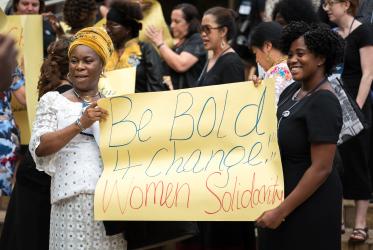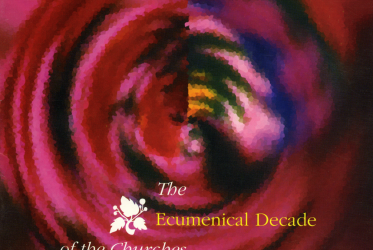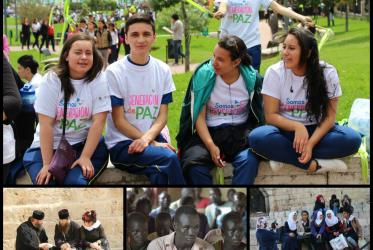Église unie de la Jamaïque et des îles Caïmans
In 1965 the Presbyterian Church of Jamaica and Grand Cayman and the Congregational Union of Jamaica merged to form the United Church of Jamaica and Grand Cayman. The latter was joined in 1992 by the Disciples of Christ in Jamaica, to constitute the United Church in Jamaica and the Cayman Islands (UCJCI). The journey began in 1800 when the Presbyterian Church was established in Jamaica through the work of the Scottish Missionary Society. It was not until 1824, though, that work was undertaken on a large scale on the sugar estates. With emancipation in 1838, some 300,000 people were freed. Ten years later, the first synod was held. Congregational churches were formed through the activities of the London Missionary Society from 1834. With practically no financial or manpower resources, a serious crisis soon arose. Appeals were made to the Congregational Union of England and Wales and to the International Congregational Council. This resulted in the Colonial Missionary Society taking over responsibility for financial support and the provision of ministers from Britain. The church began to grow again and subsequent progress led to the gradual withdrawal of the London Missionary Society and the formation of the Congregational Union of Jamaica in 1877. The Jamaican mission of the Disciples of Christ (USA) began in 1839. Between 1870 and 1950 the movement grew considerably. Some 30 congregations were established during this time, either as new churches or as a result of cooperation with Baptist or Methodist connections. The church gained autonomy in the 1950s. Presbyterian mission in the Cayman Islands started in 1845. Since then the Presbyterian and subsequently the United Church have maintained a strong presence in Christian witness in that society.
The United Church maintains a strong tradition of cooperation with other denominations and is actively engaged in the development and consolidation of institutions and churches. The UCJCI has also pioneered projects in community development, vocational training, children's homes, and a rehabilitation home for older prisoners. It has been in the forefront in the fight against social evils like gambling, promiscuity and economic injustices. It is deeply concerned about the plight of the less fortunate, especially in the cities, and has been involved in special ministries to the urban poor. The church is actively involved in education in both Cayman and Jamaica. In addition to playing a major role in helping to establish the foundation for the systems that exist today, the UCJCI continues to make significant contributions to education at all levels in the two societies.
The UCJCI's commitment to society has not only been through congregational social projects or the individual action of ministers, but also through the actions of the laity. Several members of the United Church have been members of parliament. There is a governor general in Jamaica and a national heroine in the Cayman Islands. Leadership development, evangelism and church growth, strengthening of families and peace-building are major concerns for the UCJCI. It is also committed to missions at home and abroad and continues to encourage people to enter full-time ministry and to go overseas in the service of Christ. A significant activity in the life of the church is a youth movement, which centres on an annual youth camp. Through this camp a number of young people have committed their lives to Christ, and serve the church in various capacities.
The UCJCI maintains special relations through the CWM member churches and with the Church of Scotland, the Presbyterian Church in Ireland, the United Church of Canada, the Disciples of Christ and the United Church of Christ in the USA.




